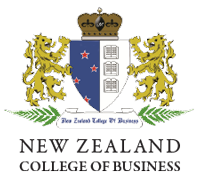Diploma in Business Administration Level 7
This is a full time 1-year course consisting of 7 papers or modules, with each module having the duration of 7 weeks. Each week will have 20 hours of learning. To complete the Diploma, all modules are compulsory and the programme is designed to be multiple entries. Therefore, students may enter at the beginning of any module and conversely depart at the end of any module. All students will be encouraged to complete a full cycle of Diploma study. This qualification is recognised for immigration points under skilled migrant category. The 7 papers are:
CORPORATE STRATEGIC PLANNING
Corporate strategy planning is a capstone unit designed to expose students to a strategic perspective on planning and issues that concern the firm as a whole. This component aims to: Provide students with a broad understanding of strategic planning, as well as different corporate strategies, concepts, and theories, and their importance for the organization. Assist students in developing strategic decision-making skills; create corporate strategic plans based on class discussions and case analysis and gain sufficient knowledge about the procedure to execute corporate strategic plans.
STRATEGIC MARKETING COMMUNICATIONS
Marketing communication is advertising and promotion – the attempt of sellers to strategically persuade prospective buyers to accept the sellers’ communication and store it in retrievable form. In other words, strategic marketing communication entails the strategic management of persuasive communication. One aim of this course is for students to understand the principles that underlie the process of strategic marketing communication. In addition to the exploration of how those principles can be applied strategically, in particular to the development of promotion plans and strategy, students are expected to develop the knowledge and analytical skills necessary to understand, develop, implement, and evaluate an organization’s communication activities by the end of the course.
CUSTOMER RELATIONS MANAGEMENT
Customer Relations Management is a business strategy to select and manage the most valuable customer relationships. It requires a customer-centric business philosophy and culture to support effective marketing, sales, and service processes. CRM applications can enable effective customer relationship management, provided that an enterprise has the right leadership, strategy, and culture.
RESEARCH METHODOLOGY
This course is designed to prepare students to critically evaluate published research in their field and to design their own research studies. It is divided into two parts. In the first part, we will discuss and compare qualitative and quantitative approaches to the design of research studies in marketing.
Topics to be covered include deciding on a paradigm, stating a purpose for the study, identifying the research questions and hypotheses, using theory, and defining and stating the significance of the study. In the second part of the course, we will concentrate on quantitative research methods and develop skills in applying statistics to research problems. Topics to be covered include: describing variables, constructing research designs, coding and displaying frequency data, describing interval and ordinal values, locating scores and finding scales in a distribution, probability and hypothesis testing procedures.
STRATEGIC MARKET PLANNING
The course is a blend of business and marketing strategy with components of competitive advantage, competing in global markets, and strategic analysis. The course integrates previous studies in marketing into the strategic context of the organization.
CROSS CULTURAL MANAGEMENT
This paper examines organizational and individual behaviors, structures and management practices in multinationals and in business situations involving cross cultural interactions. The objective of the paper is to equip students with both analytical and practical skills to help them manage effectively in multinational firms. The focus is on the management of cultural differences. This challenge is not unique to multinationals as many domestic firms also face multicultural environments (e.g., ethnically diverse employees and/or customers).
MARKETING NEW PRODUCTS
This paper introduces the theory and practice of market led marketing and new products through all aspects of the new product development process, from idea generation through to product launch and post-launch evaluation
* Study Pathways:
Continue with a Master Degree in Lincoln University or Massey University or University of Canterbury.
Lincoln University
Master of Business (Accounting and Finance)
Master of Business (Global Management and Marketing)
Master of Tourism Management
Master of Information Technology
Massey University
Master of Business Studies (Accountancy)
Master of Business Studies (Banking)
Master of Business Studies (Communication)
Master of Business Studies (Economics)
Master of Business Studies (Finance)
Master of Business Studies (Human Resource Management)
Master of Business Studies (Management)
Master of Business Studies (Marketing)
University of Canterbury
Master of Applied Finance and Economics
Master of Business Administration
Master of Business Information Systems
Master of Business Management
Master of Financial Management
Master of Professional Accounting
* Career Opportunities:
This qualification is recognised for immigration points under skilled migrant category, and have the opportunity to obtain 1-3 year work visa in NZ. With this qualification you will have the ability to take on general management roles or specialist jobs relating to your major in a wide range of business and industries.
* Market Rate Salary NZ (2016) :
| Customer service | $35k–65k |
| Hospitality & Tourism | $32k–55k |
| Hospitality & Tourism | $32k–55k |
| Marketing | $37k–125k |
| Office administration | $35k–65k |
| Retail | $32k–65k |
| Sales | $37k –105k |


